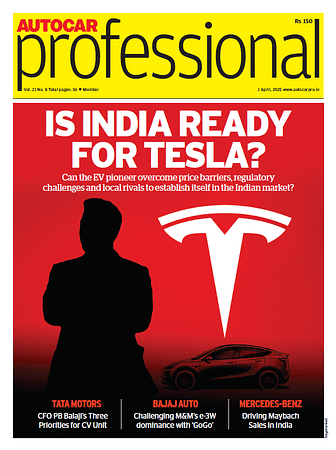KPMG Releases Report on Emerging Trends in Infrastructure and Transport for 2025
KPMG’s latest report examines key developments in infrastructure and transport, highlighting changes in digital technology, workforce challenges, supply chain efficiency, funding strategies, energy transition, resilience, and sustainability efforts across industries.
KPMG has published its latest report, The Great Reset: Emerging Trends in Infrastructure and Transport 2025, analyzing key developments influencing the global infrastructure sector. The report examines how industries are adapting to climate change, economic changes, and technological advancements, offering insights for decision-makers in infrastructure and transport.
The report highlights the increasing use of digital twins—virtual models of physical infrastructure—to improve operational efficiency, predictive maintenance, and long-term planning. KPMG anticipates that these tools will play a crucial role in infrastructure management in the coming years.
A shortage of skilled professionals in construction and infrastructure remains a pressing issue. The report notes that companies are struggling to attract talent with digital expertise and may need to invest in training programs to bridge the gap.
With climate change, economic shifts, and rapid technological advancements reshaping infrastructure needs, KPMG recommends that industry leaders reassess conventional approaches to remain resilient and effective.
Fragmented global supply chains contribute to increased costs and environmental concerns. The report underscores the importance of standardized processes, infrastructure, and regulations to enhance efficiency and sustainability.
As the demand for infrastructure investment grows, the report discusses a potential move toward privatization and alternative funding models such as asset monetization to address financing gaps.
While advancements in solar and wind energy continue, some sectors remain difficult to decarbonize. The report highlights the need to balance economic feasibility with environmental impact and predicts a growing role for blended finance models in supporting energy transition efforts.
The increasing frequency of extreme weather events underscores the importance of resilient infrastructure. KPMG suggests that asset owners adopt proactive risk management strategies and modernize aging infrastructure to enhance public safety and business continuity.
Trade policy shifts and economic fluctuations are contributing to volatility in the shipping sector. The report advises industry participants to embrace innovation, sustainability initiatives, and collaboration to navigate these challenges effectively.
KPMG’s report emphasizes the need for measurable sustainability efforts in infrastructure projects. It predicts a stronger focus on sustainable procurement, construction, and operational practices across industries.
RELATED ARTICLES
AKWEL Reports 32.3% Decline in Net Income in 2024 Amid Market Challenges
AKWEL attributed its financial decline to inflationary pressures on raw materials, components, and payroll costs, compou...
“Customers Swear by Their Quality—We’ll Bring Scale, Capital, and Integration” — Arvind Goel on Recent IAC Acquisitions
Tata AutoComp Chairman Arvind Goel outlines the rationale behind the twin acquisitions in Sweden and the UK and how the ...
Trump Tariffs: Auto Industry Reactions
While the industry did not react to the tariffs when they were first announced in March, many industry voices spoke abou...






 By Sarthak Mahajan
By Sarthak Mahajan
 02 Apr 2025
02 Apr 2025
 967 Views
967 Views





 Arunima Pal
Arunima Pal


 Ketan Thakkar
Ketan Thakkar


